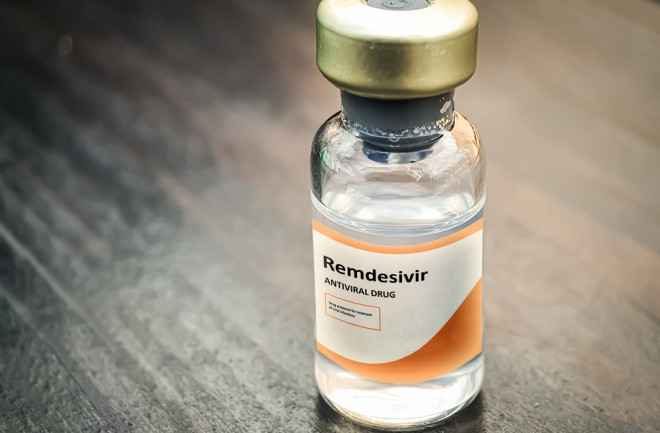Remdesivir doesn’t cure coronavirus. But the experimental drug, which may speed up recovery from a COVID-19 infection, is currently the best treatment we have against a virus that’s on a global rampage.
Late last week, the FDA authorized emergency use of the antiviral drug. The move came on the heels of preliminary results from a clinical trial that found patients treated with remdesivir had a 31 percent faster recovery than those who received a placebo. Average recovery was shortened to 11 days from 15 days, and the drug also slightly decreased the likelihood of dying from COVID-19.
“Although a 31 percent improvement doesn’t seem like a knockout 100 percent, it is a very important proof of concept because what it has proven is that a drug can block this virus,” Anthony Fauci told reporters at a White House meeting announcing the findings. Fauci, the director of the National Institute of Allergy and Infectious Diseases, also likened the finding to discovering the first modestly effective antiviral treatment for HIV decades ago.
But there are many questions around remdesivir’s ability to stand up to COVID-19. Chief among them is that a randomized and controlled study — released by The Lancet the same day — found conflicting results about the drug’s effectiveness. The study, which took place in China, found that remdesivir did not quicken recovery or reduce deaths from COVID-19 compared with a placebo.
Read more: Is Herd Immunity Our Best Weapon Against COVID-19?
Factors that might explain the different conclusions is that the participants in the Chinese study may have been more severely ill by the time they received remdesivir, and that the study ended earlier than planned because a decline in coronavirus cases in China impacted participant enrollment. But not everyone agrees that these were significant factors affecting the outcome.
In any case, remdesivir is far from being a miracle drug, and it seems unlikely that it will make coronavirus a milder, more manageable disease anytime soon.
How Does Remdesivir Work?
Remdesivir is an antiviral medication originally developed by biopharmaceutical company Gilead Sciences to treat Ebola. Although the drug didn't work well against that disease, it later showed promise fighting SARS and MERS — illnesses caused by coronaviruses — in animal studies, which is why researchers thought remdesivir might help fight COVID-19.
Once SARS-CoV-2 — the strain of coronavirus behind the disease that’s ravaged the world this year — invades a human cell, it replicates with the help of a viral enzyme called RdRp. Remdesivir is designed to slow or stop the virus from creating copies of itself by blocking this particular enzyme. The drug works differently than antibody-based treatments or vaccines, which are designed to help a person’s immune system identify and eliminate pathogens.
Remdesivir is most effective when given early — as soon as patients begin to show symptoms. But giving the drug early in an infection is a challenge because it is administered to the patient over 10 days through an IV.
Who Can Get Remdesivir?
Supply of remdesivir is limited, and its currently reserved for the sickest COVID-19 patients — those with blood oxygen levels at or below 94 percent and who require supplemental oxygen.
But before any drug can be used widely, it must meet the FDA’s rigorous approval standards. Previously, the FDA also approved emergency use of the anti-malaria drug hydroxychloroquine, but there isn’t much evidence that it provides benefits to COVID-19 patients, and it also comes with serious side effects. That said, no drug is without side effects: Remdesivir might cause liver damage in some patients.
While the remdesivir development is an important first step, we’re still a long way from FDA-approved therapies that are proven to prevent or treat COVID-19. The first antibody-based treatments could become available in the fall, and a coronavirus vaccine is still at least a year away.

